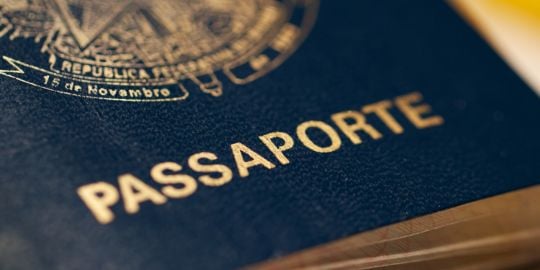 On its face one would think that the proposed revision of Brazil's antiquated Penal Code would be a good thing, since for the most part it has remained unchanged since it was enacted in 1940. I don't think you need to be a rocket scientist to understand that any country's justice system cannot possibly function effectively with laws that are so blatantly outdated. Just think back to your childhood, how many things now exist that didn't exist when you were a child. How many technologies either were a distant dream or in their very infancy. Crimes are being committed nowadays by methods that these laws could not have even envisioned. So, one would think it logical that any change would surely bring about an improvement and more security, right?
On its face one would think that the proposed revision of Brazil's antiquated Penal Code would be a good thing, since for the most part it has remained unchanged since it was enacted in 1940. I don't think you need to be a rocket scientist to understand that any country's justice system cannot possibly function effectively with laws that are so blatantly outdated. Just think back to your childhood, how many things now exist that didn't exist when you were a child. How many technologies either were a distant dream or in their very infancy. Crimes are being committed nowadays by methods that these laws could not have even envisioned. So, one would think it logical that any change would surely bring about an improvement and more security, right?
Do I believe that this will be the case? The short answer is NO and I am not alone in that opinion. Many professionals in law enforcement and in the legal profession are also publicly stating exactly the opposite; the revision is quite likely to make public safety in this country an even more distant dream.
One need only look at the changes that were made to the Penal Processes Code, Law 12.403/11 which has drastically hampered the ability of police to arrest and incarcerate suspected criminals until their trial. First one must understand that here in Brazil there is a strange legal concept called “prisão em flagrante” which basically means that a suspect must be caught in the act (or very shortly thereafter) or they cannot be imprisoned to stand trial, unless the Court orders a Temporary Arrest Warrant or A Preventive Arrest Warrant. We then are faced with a situation which benefits criminals who flee the scene of a crime and go into hiding for a few days like the recently famous case of a restaurant owner and his son, suspected of murdering a customer over a disputed R$7 overcharge on the bill. The pair went into hiding and resurfaced 48 hours later knowing that would not be held in custody. The owner has since been taken into custody temporarily, but will almost certainly be released to await trial.
As if all this isn't bad enough the new law makes bail (fiança) mandatory for all crimes which would result in a sentence of up to 4 years upon conviction. This includes simple robbery, vehicular homicide, concealed weapons charges, discharging a firearm, corruption of a minor, possession or production of child pornography, smuggling, hostage taking, etc. Given that in many cases it can take up to five years for a trial to take place in theory a robber could commit 20 or more robberies, being caught in the act each time, and never be held in custody until convicted on the first charge. Scary though this! This is compounded by the fact that the law itself has set bails at a ridiculously low level.
Now, add to all that the fact that Electoral laws prevent arrest warrants from being executed in the five day period leading up to an election (federal, state or municipal) and the two days following. During this period only those arrested “em flagrante” can be detained.
Indications are that there will be significant emphasis put on alternative measures such as house arrest. How, I ask you in a country that can't even control their prisoners while in prisons, can they hope to control convicted offenders in their own homes?
It has also been reported that the benefits afforded to prisoners in Brazil will be expanded rather than reduced. This is one of the only countries I know of where prisoners are released (with little more than a promise to return) for holidays such as Mother's Day, Father's Day, Easter, Christmas and New Year. Each holiday many of those released take advantage of their liberty to commit other crimes and still others simply never return. Of course it's the general public who must pay a high price for this, both in terms of the dangers of having these criminals on the loose and the costs involved in recapture.
I find it strangely ironic that Brazil has no program to assist or compensate victims of crime in any way whatsoever, yet they operate a pension scheme (Auxílio-reclusão) that pays a monthly income of R$971 to the spouse, child or parent of prisoners during their period of incarceration, fully R$300 more than the minimum wage.
The combined effect of all of this serves only to increase the public perception of the total lack of security, reinforces the sense of impunity for criminal behavior while at the same time fanning the flames of the longstanding blood-feud that has existed between law enforcement agencies and organized crime groups all over Brazil and in São Paulo and Rio de Janeiro states in particular.
NO, things will not get better in my opinion. I think it is much more likely that they will get considerably worse when the changes eventually come. Despite the fact that there are provisions for public hearings, Brazilians culturally do not become politically involved. They do not complain or protest in any organized or collective way. This is just not part of their make-up. Politicians will do as they've always done in the past and that is to create laws that for the most part are completely ineffective or protect themselves from prosecution, benefit criminal defense lawyers and the criminals they represent.
If you're starting to get the impression that the justice system here is completely upside-down, that's because it is.
Cheers,
William James Woodward - Brazil Animator, Expat-blog Team
Proposed Revision of Brazil's Penal Code - will it improve things?
That's all a bit depressing, and yes I think it's possible I misunderstood the PM I was talking to the other day - I'll check with him whether he meant a murderer can now pay a fianca and is unlikely to stand trial, ever, or whether it's just bail he was referring to. I suspect it's the latter - it would make more sense.
regards
James
Subscribe to this topic

Open a bank account that suits you
Discover the best international banks to manage your money securely.
"








